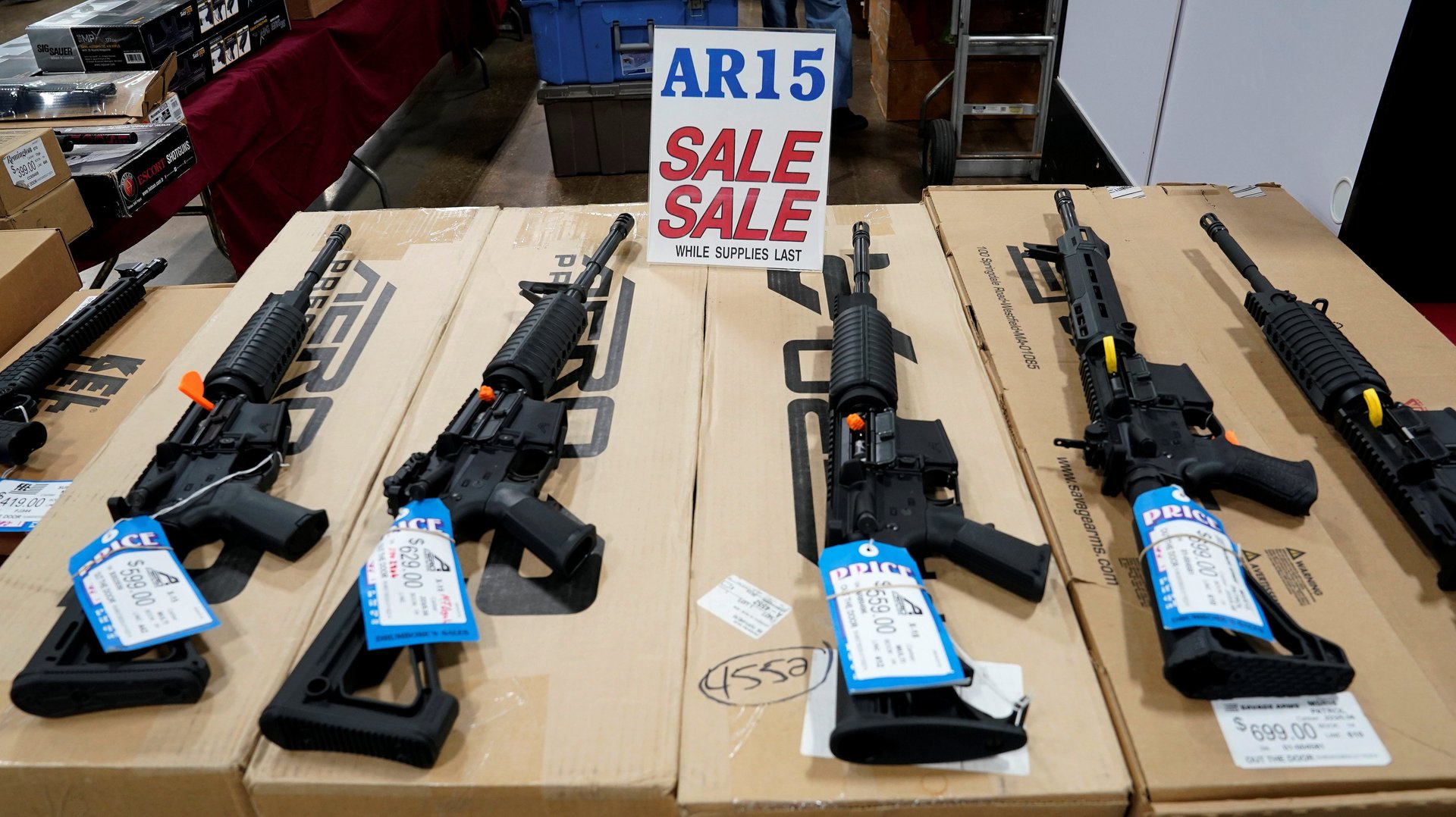Talking about gun control without passing laws is actually great for gun makers and the NRA
Tragedies like the school shooting that left 17 dead in Parkland, Florida, should be damaging to the National Rifle Association and the gun makers it represents. Since last week, the cash-rich gun lobby has been a target of fury for activists and demonstrators.


Tragedies like the school shooting that left 17 dead in Parkland, Florida, should be damaging to the National Rifle Association and the gun makers it represents. Since last week, the cash-rich gun lobby has been a target of fury for activists and demonstrators.
But public outcry against lax US gun laws has actually been great for the NRA and gun companies in recent decades. That’s because the lobby has successfully used fear of upcoming new regulations to push gun sales, while using its powerful lobbying muscle to keep most laws from being passed on the federal level.
Talk about gun control “is actually really good for you if you’re the NRA,” said Dan Cassino, a politics professor at Fairleigh Dickinson University. The lobby and its big donors want “someone to fight,” he said. “They want this discussion to happen because it is good for gun sales.”
US gun sales, and stocks of gun companies, tanked after Donald Trump was elected because potential gun buyers relaxed; they didn’t need to worry that the NRA-backed president would limit sales. For the past year, the NRA has struggled to find a “threat” that activates members to buy more guns, Cassino.
US gun sales spike every year in the fall, during hunting season, and around Christmas, when they’re given as gifts, according to a chart (below) of FBI background checks. Background checks serve as a proxy for gun sales, because the US doesn’t have accurate, up-t0-date gun sales data; the NRA has been lobbying for decades against measures that would allow the federal government to track them. This may substantially undercount actual sales, industry experts say, because it doesn’t account for sales that aren’t subject to FBI background checks, and doesn’t reflect whether buyers bought more than one gun.
Beyond the seasonal fluctuations, gun sales rose quickly during the Barack Obama administration, as the then-president pushed (mostly unsuccessfully) to expand background checks, and pro-gun control politicians introduced dozens of laws that Congress refused to debate.
Gun sales also spiked dramatically just after the 2012 Sandy Hook shooting, when 20 children and six adults were killed with a semi-automatic rifle—a time when the nation momentarily coalesced around a call for more gun control. (Despite the national attention, federal gun control measures never passed Congress after Sandy Hook. )
The third huge spike in the chart occurs just before the 2016 presidential election, which Hillary Clinton was expected to win. That jump likely was a response to Hillary’s promise to close gun-buying loopholes and “support work to keep military-style weapons off our streets.”
Whether sales will fall after federal gun control laws are passed is unknown, because the US hasn’t passed any meaningful ones in decades. The last time the US significantly strengthened federal regulations on gun control was an assault rifle ban in 1994. Congress allowed that ban to expire in 2004, and gun sales have risen steadily since then.
Despite the rising overall sales, it’s not all bad news for those concerned about the prevalence of guns in America. Most Americans don’t own a gun, and gun ownership rates are falling from generation to generation. Two-thirds of gunowners own one or more guns, and nearly a third own five or more, so much of the increase in sales is likely going to people who are already armed.
Gun control activists, including the students who went to Parkland’s Marjory Stoneman Douglas high school, have vowed that this time the tragedy will result in a meaningful change in legislation, and are organizing state-wide and national protests to push politicians to pass new laws. In the wake of Florida’s school shooting, support for stronger gun control legislation just hit a record high.
After several states, including Connecticut, passed stricter local laws after the Sandy Hook shooting, gun deaths in the state dropped significantly, as the New York Times and PBS explain.